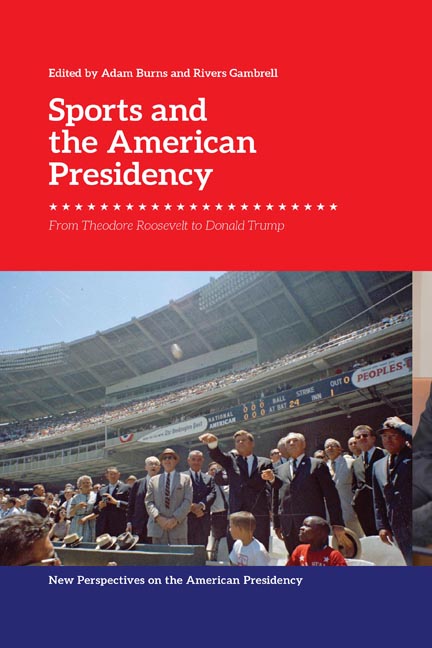5 - Fit to Govern? The Presidency, Running, and Perceptions of Strength
Published online by Cambridge University Press: 20 October 2023
Summary
Our own history, perhaps better than the history of any other great country, vividly demonstrates the truth of the belief that physical vigor and health are essential accompaniments to the qualities of intellect and spirit on which a nation is built
President John F. Kennedy, 1962.First steps: an introduction
The kind of running being practiced in the late 1960s was, according to 1964 Boston Marathon finisher Hal Higdon, “not the Bobby Kennedy type of running, which peaks during leap years, mind you, but the running type of running which until recently was practiced mostly by school athletes.” Whilst both forms of running identified by Higdon in his New York Times segment invariably, it is fair to say, result in raised heart rates, that was not where the relationship between politics and running stopped. From Theodore Roosevelt’s advocacy of the Strenuous Life, arguably even all the way back to the foot races of the Olympics of Ancient Greece, physical fitness is a quality that, throughout human history, has been indicative of personal qualities of heroism, perseverance, and mental fortitude. As President Kennedy explained in his famous article, “The Vigor We Need,” published by Sports Illustrated in 1962, physical fitness has increasingly and explicitly been related to political strength and leadership throughout American history.
Running took off quickly in Washington D.C. in the 1960s. Likely spurred on by the efforts of the Kennedy administration to promote a more vigorous lifestyle, personal physical fitness outside organized sports was becoming a point of concern for citizens in the United States as the search for national strength intensified with the Cold War. Additionally, the growth of local running clubs, the organization of road races, and the emergence of a running-specific market for consumers meant that running became an increasingly popular hobby for many Americans. Even busy politicians and high-profile civil servants were finding time to lace up their shoes and pound the pavement, including figures such as senators Strom Thurmond and William Proxmire, and press secretary to the First Lady, Liz Carpenter. A keen proponent of the new craze was Secretary of the Interior Stewart Udall, who became his own best public relations asset by jogging “two miles along the Potomac River on one of the four new jogging trails opened by the National Parks Service” in November 1967.
- Type
- Chapter
- Information
- Sports and the American PresidencyFrom Theodore Roosevelt to Donald Trump, pp. 103 - 122Publisher: Edinburgh University PressPrint publication year: 2022



